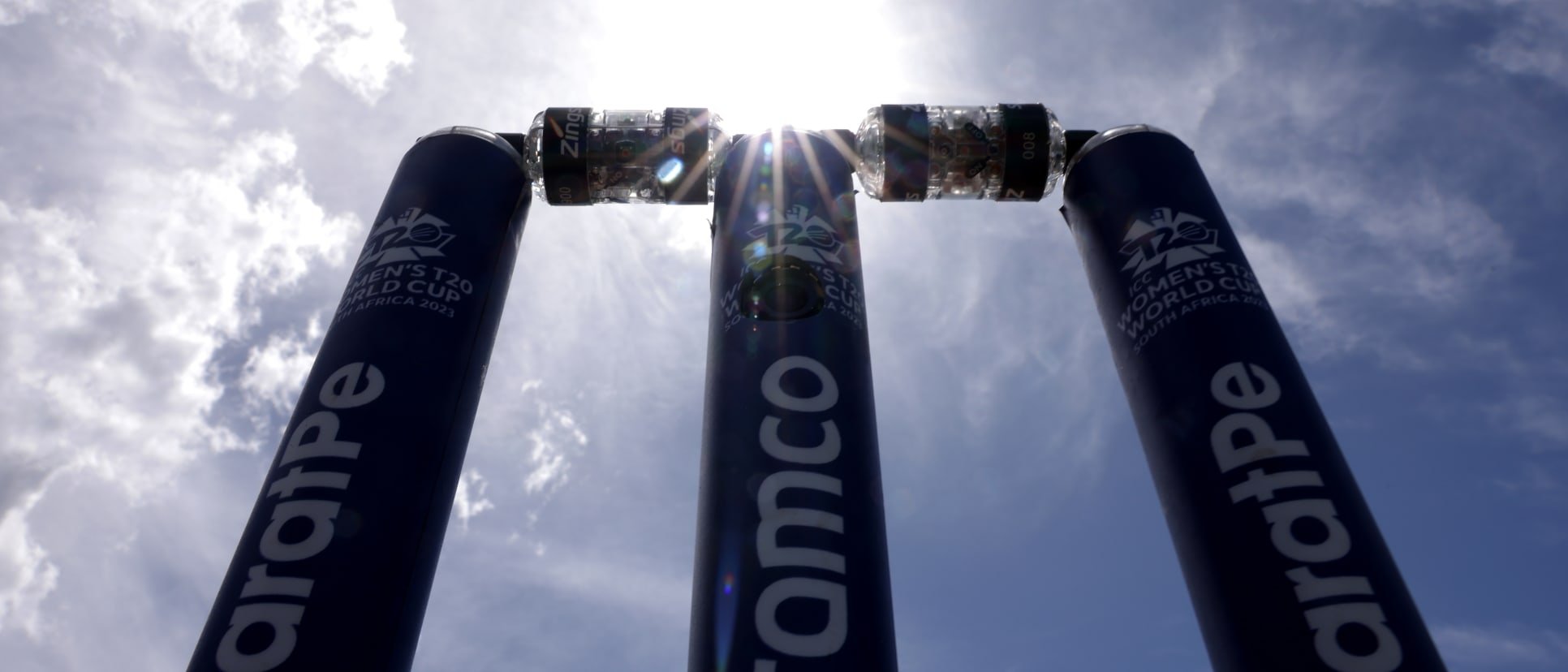From Bails to Barrels: T20 is Saturated in Oil…
Guest Blog from Michael Hardy, Director at Game Changer
The International Cricket Council recently agreed an extension to their controversial sponsorship deal with Saudi Aramco
The climate crisis is already having far-ranging impacts on cricket. Games around the world have been cancelled due to extreme weather events including: wildfires in Australia, widespread flooding at, Worcestershire County Cricket Club,, New Zealand cancelling tour matches due to extreme heat and severe thunderstorms washing out Bangladesh’s warm up match for the current T20 World Cup. And this will only get worse as the climate crisis strengthens its grip.
The ICC Men’s T20 World Cup is well underway with great cricket already being played. Yet, one of the sports widely regarded as the hardest hit by the climate crisis is drenched in oil. The teams, players, umpires and even the tournament itself act as giant advertising billboards for climate-wrecking companies.
The International Cricket Council recently announced that their sponsorship deal with the oil giant Saudi Aramco has been extended until the end of 2027. This deal extension comes amidst state owned Saudi Aramco extending their sportswashing portfolio, recently signing a sponsorship deal with FIFA also until the end of 2027… It’s not just us calling this sportwashing - the Saudi Crown Prince agrees:
“If sport washing is going to increase my GDP by way of 1%, then I will continue doing sport washing”. - Crown Prince of Saudi Arabia Mohammed Bin Salman
This outrageous sponsorship extension has drawn much attention, from cricket fans to the global media. Cricket's fossil fuel addiction runs far deeper than just one sponsor. At least three teams participating in the tournament will have sponsorship deals directly with the petrochemical industry and one nation, Papua New Guinea (PNG), has two: fossil fuel giant Santos and state owned Kumul Petroleum. Meanwhile, petrochemical firm Majees sponsors the Oman national cricket team and Scotland is sponsored by the Parkmead Group, a fossil fuel company that produces natural gas from a portfolio of four fields across the Netherlands, and holds significant additional oil and gas interests in the UK and Dutch sectors.
Adverts from polluting forms of transport, airlines and SUV manufacturers have also been ever present during the tournament. These extend from Emirates, with whom the ICC have just signed a new long term deal extension, to Qantas and Toyota and their deals with Australia, Namibia’s deal with Airlink, and New Zealand and Canada who have sponsorship deals with Ford and Nissan respectively.
In 2022, aviation emissions reached almost 800 Mt of carbon dioxide, more than double the entire CO2 emissions of the UK in the same year. Research shows that airline advertising, including those within cricket, adds up to 34 million tonnes of CO2 emissions per year. Rising emissions from SUVs in 2023 made up 20% of the global increase in CO2, making the vehicles a major cause of the intensifying climate crisis. If SUVs were a country, the IEA said, they would be the world’s fifth-largest emitter of CO2, ahead of the national emissions of both Japan and Germany. Ford - one of the companies sponsoring a team at the T20 World Cup - manufactures number three on the list of the “environmentally meanest cars for 2024.”
Research shows that fans and spectators begin to associate the intense emotion of sport with the brands that sponsor the teams and tournaments. Over time this results in fans building positive associations with specific brands, often overlooking their more questionable and damaging practices. Sponsorship also drives increased consumption of the products being advertised and therefore drives increased profit margins for the companies advertising.
Things don’t have to be this way. Cricket doesn’t have to promote companies harming the planet and jeopardising the future of the sport itself. When people come together and speak out, change can happen. After Pat Cummins spoke out against the coal giant Alinta Energy, the sponsorship deal with Australia was ended. Santos, Papua New Guinea’s sponsor was previously dropped by Tennis Australia after a campaign highlighted sportswashing. There is precedent for cricket ending harmful sponsorship. Like in most sports, the tobacco industry once used cricket to promote its image. John Player & Sons was one of the companies doing so, including giving its name to the John Player League. Tobacco sponsorship in sport was dropped as the awareness of its harms became increasingly apparent. The same should happen with high-carbon sponsorship as the harms to people and planet are well known.
But what can you do?
Change only happens when people come together and use their voices. The GameChanger Sponsorship Pledge, jointly hosted by Platform and Badvertising, aims to bring sports fans, athletes, teams and organisations together to end harmful sponsorship in sport. You can sign up as an individual as well as signing up your team and organisation here. Together we can make a difference. The NextTest are on board. We would love to have you on board too.
Pledge your support here.
Michael Hardy
Director at GameChanger
(The sponsorship deals mentioned were obtained using the SportBusiness Sponsorship database)

